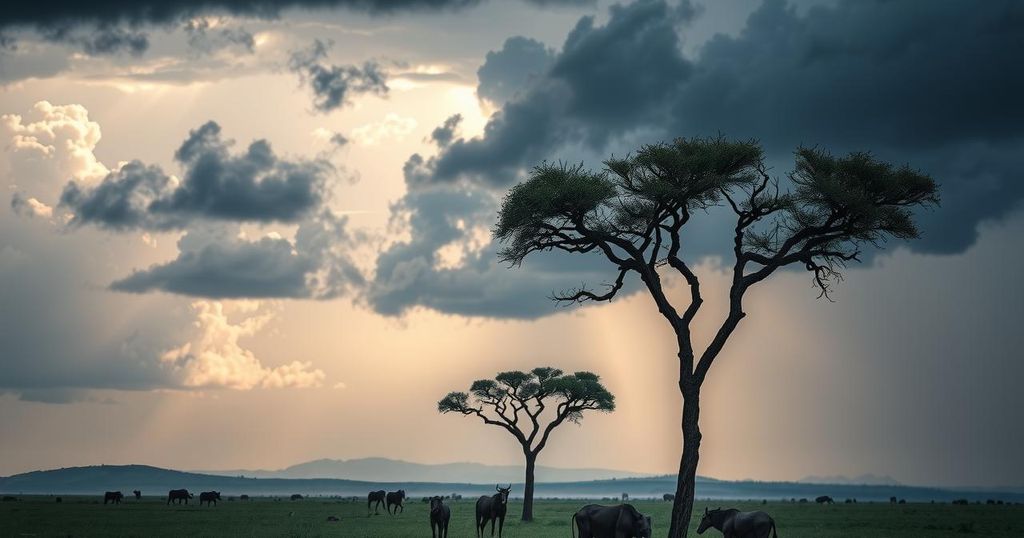Escalating Tensions Between DR Congo and Rwanda: A Looming Crisis
The conflict in Eastern Congo escalates as the M23 rebel group captures Goma, leading to fears of widespread war between the DRC and Rwanda. Resource disputes and political issues underpin the violence, highlighted by international demands for Rwandan withdrawal. Despite a temporary ceasefire, the region’s turmoil persists, exacerbated by corruption and inadequate military support from the DRC government.
The precarious situation between the Democratic Republic of the Congo (DRC) and Rwanda threatens to escalate into a full-blown war. Last week, the M23 rebel group, which has Rwandan backing, captured Goma, resulting in significant casualties. For over three decades, the region has been mired in violence, but the latest resurgence may push it past the brink. International calls for Rwandan withdrawal have intensified, especially after the deaths of South African soldiers in peacekeeping efforts.
At the core of this crisis are contests over valuable resources like coltan and cobalt, essential for electronic devices. Rwanda accuses Hutu extremists of seeking refuge in eastern Congo post-genocide, while the DRC claims Rwanda is exploiting the conflict for resource theft. Critiques of the DRC’s leadership underscore a history of corruption and failure to engage in negotiations, exacerbating the conflict with M23.
The inadequacy of DRC’s military forces is evident, with low salaries disheartening recruits while Rwandan-sponsored mercenaries garner higher wages and better support. This has led to devastating consequences for the Congolese populace, with millions displaced and rampant violence and exploitation occurring in parts of the eastern region.
Rwanda’s ambitions may not end at Goma, as concerns grow that it seeks to expand its territory. Previously viewed favorably by international entities, Rwanda’s aggressive stance under President Kagame has altered perceptions and urged a reconsideration of support. The recent ceasefire between M23 and the DRC is merely a temporary measure; a comprehensive solution addressing fundamental causes of this enduring conflict remains urgently needed.
The conflict situation in the DRC has deep historical roots, stemming from ethnic tensions, resource competition, and the aftermath of the Rwandan genocide. The M23 rebels, primarily comprised of Tutsi fighters, have exploited the chaos to seek control over lucrative mineral resources. The interplay of political corruption within the DRC government and Rwanda’s geopolitical ambitions complicates the conflict further, as international diplomatic efforts grapple with the region’s instability.
The mounting tensions between the DRC and Rwanda illustrate a precarious balance, driven by historical grievances and resource exploitation. A temporary ceasefire has been achieved, yet without addressing the underlying issues of governance and corruption, the cycle of violence is likely to continue. Long-term stability requires a thorough reassessment of both internal DRC dynamics and external influence from Rwanda.
Original Source: theweek.com




Post Comment